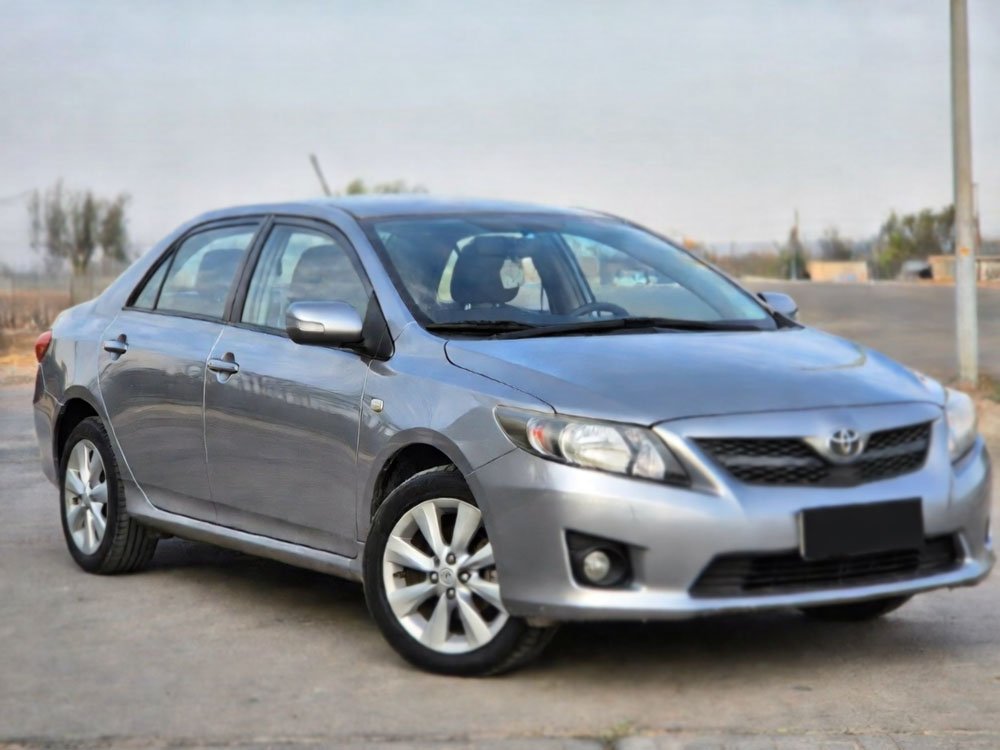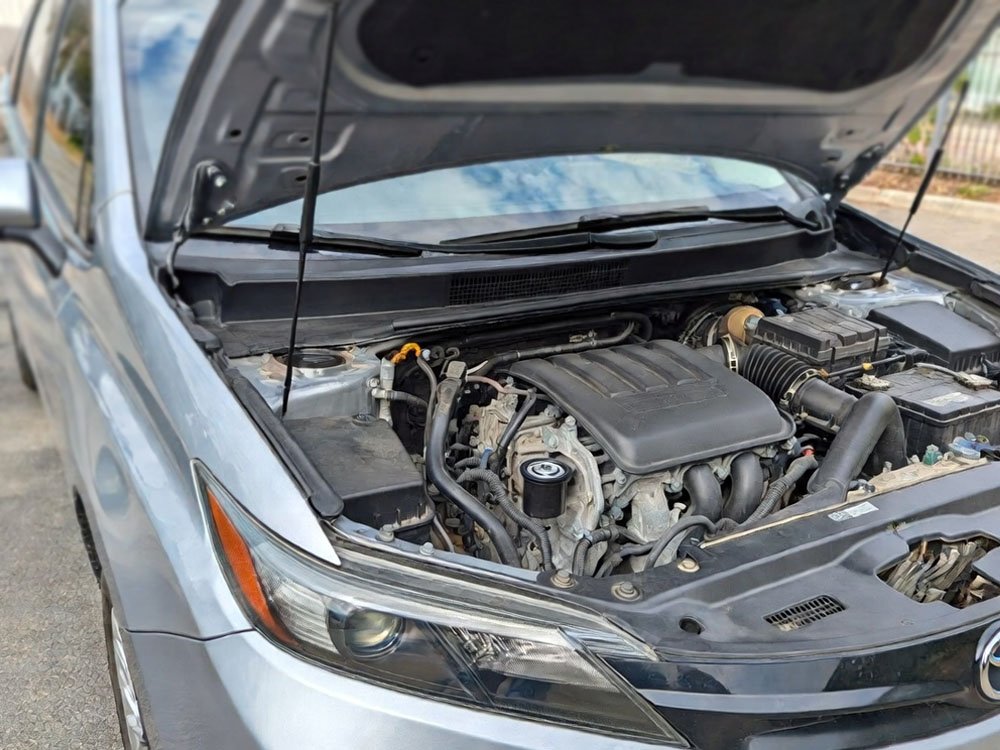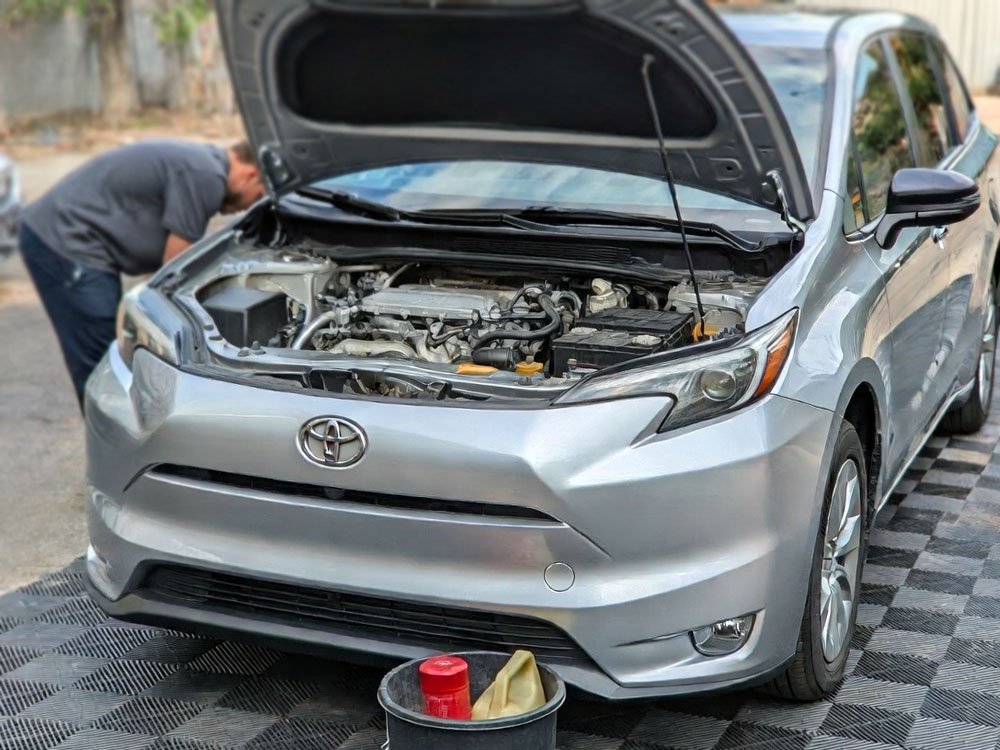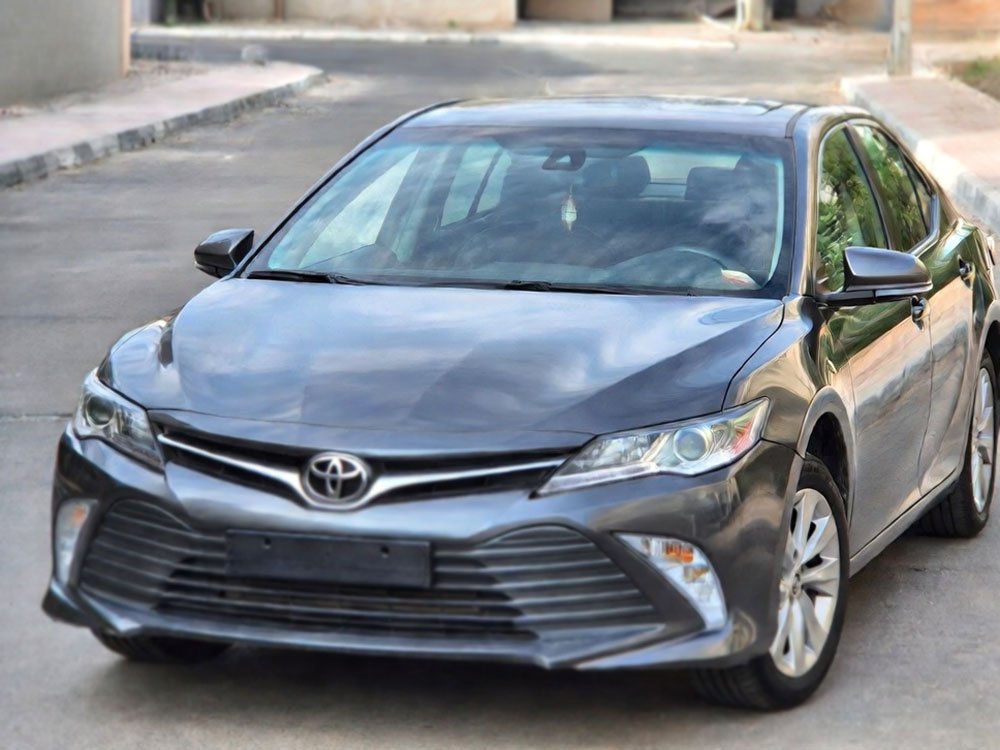As an Amazon Associate, I earn from qualifying purchases at no extra cost to you.
How to Fix a Thumping Noise When Driving? A Complete Guide
Imagine you’re cruising down the road, enjoying the drive, when suddenly – thump, thump, thump! A mysterious noise starts to echo through your car. It’s like a constant reminder that something is wrong, but what? If you’ve ever faced a thumping sound while driving, you know how annoying it can be. But don’t worry – you’re not alone, and there’s a good chance that fixing it could be easier than you think. In this article, we’re going to break down the common causes of thumping noises in cars and how you can troubleshoot and fix the problem. Let’s dive in and find out what’s making that noise!
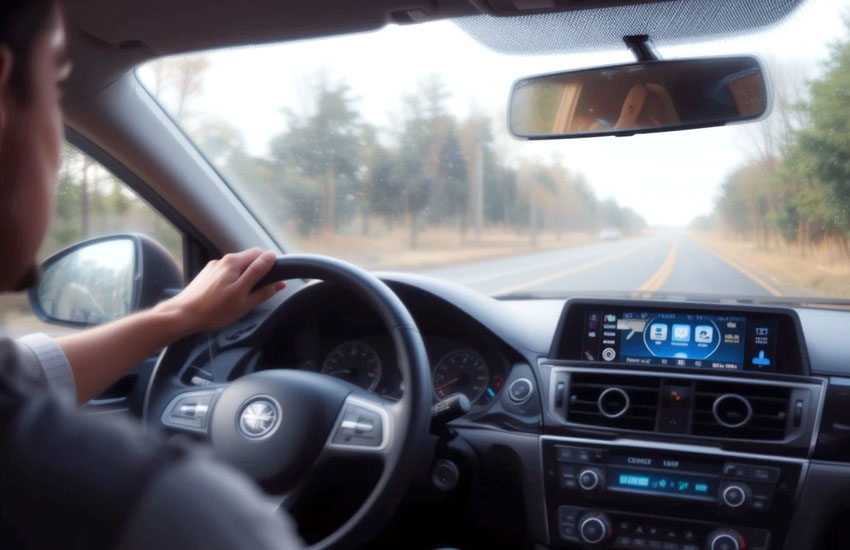
Common Causes of a Thumping Noise When Driving
When you hear a thumping noise while driving, your first thought might be that something is seriously wrong. But before you panic, it's essential to understand that there are several reasons why this could be happening. It might not be as big of a deal as you think, and with a little investigation, you can figure out what's causing the sound and how to fix it.
Flat or Damaged Tires
One of the most common reasons for a thumping noise is a flat or damaged tire. When your tire loses air, it can cause it to flatten, leading to an uneven surface that creates a thumping sound as it rolls over the road. If you have a damaged tire, it can cause the same issue. A puncture, bulging, or any kind of visible damage can lead to a noticeable thumping noise, especially at higher speeds.
What to do:
Check your tires for any visible damage. If you notice a bulge, puncture, or wear, you may need to replace the tire. If the tire is flat, try inflating it and see if the noise stops. If the problem persists, it's best to visit a tire shop for a professional inspection and possible replacement.
Worn-out Suspension System
Another potential cause of thumping noises is a worn-out suspension system. The suspension system is responsible for absorbing bumps and impacts from the road, keeping your ride smooth. Over time, the components in the suspension, like shocks, struts, and springs, can wear out or become damaged. When this happens, you might start to hear thumping noises as the suspension can no longer do its job properly.
What to do:
Listen for the noise when you go over bumps or uneven road surfaces. If you hear the thumping more pronounced in these situations, it could be a sign that your suspension system needs attention. A mechanic can inspect your suspension system and recommend the necessary repairs or replacements.
Misaligned or Damaged Brake Pads
You might be surprised to learn that your brakes could be causing the thumping noise. If your brake pads are worn out or if there is debris stuck between the brake components, it can result in a thumping or grinding sound when you apply the brakes. This issue is often more noticeable when you are slowing down or coming to a stop.
What to do:
If you suspect your brakes are the problem, check for any obvious signs of damage or wear. If your brake pads are low, it's time for a replacement. You may also want to check for any debris caught in the braking system. If the noise persists, have a mechanic inspect the brake system to ensure everything is functioning correctly.
Issues with Wheel Bearings
Wheel bearings allow your car's wheels to spin smoothly and help reduce friction. Over time, these bearings can wear out, leading to a thumping or grinding noise. When wheel bearings become damaged, they can cause uneven wheel rotation, resulting in a noise that sounds like a thump.
What to do:
If the thumping sound changes as you turn or if it becomes more pronounced when accelerating, this could indicate a problem with your wheel bearings. Replacing wheel bearings can be a complicated task, so it's best to consult with a mechanic for a proper diagnosis and repair.
Loose or Broken Parts Under the Vehicle
A loose or broken part under your vehicle can also be the culprit behind the thumping noise. This could be anything from a loose exhaust system component to a broken suspension part. When a part is not securely fastened, it can move around while driving, causing a thumping or clunking sound.
What to do:
If you suspect a loose part is causing the noise, it's essential to inspect the underside of your vehicle. Look for anything that might be loose, broken, or hanging. A mechanic can also help identify and secure any loose parts to eliminate the thumping noise.
Foreign Objects Stuck in the Wheel Wells
Sometimes, the simplest explanation is the correct one – there might be something stuck in your wheel wells or under your car. Small rocks, sticks, or other debris can get caught in the wheel area and cause a thumping noise as they hit the tire or other parts of the vehicle while driving.
What to do:
Take a look at your wheel wells to see if any debris is stuck. If you find something, carefully remove it and check if the noise stops. If debris continues to get stuck, it could be a sign of an issue with your wheel well, such as damage or misalignment.
How to Diagnose the Source of the Thumping Noise
Now that you know the most common causes of a thumping noise while driving, it's time to diagnose the problem. Diagnosing the source of the noise can be tricky, but with the right steps, you can narrow it down and fix the issue quickly. Here’s how to go about diagnosing the problem:
Step 1: Listen for Patterns
The first thing you want to do is pay attention to when the noise occurs. Is it constant, or does it happen only at certain speeds or when you're going over bumps? Try to identify if the noise changes when you accelerate, brake, or turn. This can help pinpoint the cause of the thumping noise.
For example, if the noise only happens when you're driving straight and goes away when turning, it could be related to your tires or suspension. If the noise is more noticeable when braking, the issue might be with your brakes or wheel bearings.
Step 2: Inspect Your Tires
As mentioned earlier, a flat or damaged tire is one of the most common causes of a thumping noise. So, give your tires a thorough inspection. Look for any visible damage, such as punctures, cuts, bulges, or uneven wear. Also, check the air pressure in all of your tires – a flat tire can often lead to a thumping sound.
If you don't see any obvious damage but the noise persists, try rotating your tires. This can help determine if the problem is with one specific tire. If the noise stops after rotating the tires, the issue may be with the affected tire.
Step 3: Check the Suspension System
Next, it's time to check your suspension system. Worn-out or damaged suspension parts can cause a thumping noise when driving. To check for this, try bouncing the car up and down at each corner. If the car doesn't return to its normal position quickly or if you hear any unusual sounds, it could be a sign that the suspension system needs attention.
You can also listen for any thumping noises when you drive over bumps or uneven roads. If the noise occurs during these types of maneuvers, the suspension is likely the cause.
Step 4: Inspect the Brakes
If your thumping noise occurs more prominently when you brake, it's worth inspecting your brakes. Check for signs of worn-out brake pads or debris caught between the brake components. If you notice any issues, it's best to have your brake system serviced as soon as possible to prevent further damage.
Step 5: Take Your Car to a Professional
If you've gone through these steps and still can't figure out the source of the noise, it might be time to visit a mechanic. A professional can use specialized tools to inspect your car's various systems and pinpoint the cause of the thumping sound. It's always a good idea to get a second opinion from a mechanic if you're unsure about what the issue might be.
Step-by-Step Guide to Fixing a Thumping Noise in Your Vehicle
Once you've diagnosed the cause of the thumping noise, it's time to get to work and fix the issue. Depending on the cause, fixing the noise might be a simple task, or it might require more complex repairs. Here's a step-by-step guide to fixing common causes of thumping noises:
Fixing Flat or Damaged Tires
If your tires are flat or damaged, the first step is to replace or repair them. Here's what you can do:
- Flat Tire: If you have a flat tire, you can either inflate it using a portable air compressor or change the tire using a spare. If the tire is beyond repair, you may need to replace it entirely.
- Damaged Tire: If the tire has visible damage, such as a puncture or bulge, it's best to replace it. Take the damaged tire to a tire shop for assessment, and they can either repair it or recommend a replacement.
Fixing Suspension Issues
If your suspension system is the source of the thumping noise, it may require repair or replacement of components like shocks, struts, or springs. Here's what you should do:
- Inspect Suspension: Have a mechanic inspect the suspension system to check for damaged or worn-out components.
- Replace Damaged Parts: If any suspension parts are worn or broken, they will need to be replaced to restore the smooth ride of your car.
- Rebalance Suspension: After replacing the damaged parts, the suspension system may need to be balanced to ensure everything is working correctly.
Fixing Brake Problems
If your brake pads or other braking components are causing the noise, here’s how to fix them:
- Inspect Brake Pads: If the brake pads are worn down, replace them with new ones.
- Remove Debris: If debris is stuck in the braking system, carefully remove it.
- Brake Inspection: If the noise persists, have a professional inspect the entire brake system to ensure there are no other issues.
Fixing Wheel Bearings
Replacing wheel bearings is a more complicated repair and often requires specialized tools. If your wheel bearings are the source of the noise, follow these steps:
- Confirm Wheel Bearing Issue: Have a mechanic confirm that the wheel bearings are the problem.
- Replace Wheel Bearings: The mechanic will remove the damaged wheel bearings and replace them with new ones.
Fixing Loose or Broken Parts
If a loose or broken part is causing the noise, here’s how to fix it:
- Identify the Loose Part: Inspect the underside of your car to identify any loose or broken parts.
- Tighten or Replace: Tighten any loose bolts or replace broken parts as needed.
I hope this guide helped you understand the causes of thumping noises when driving and gave you clear steps to fix the problem. If you’re still hearing that annoying thump, don't hesitate to consult a professional. Your car deserves to run smoothly, and with a little time and care, you'll get there!
Frequently Asked Questions
Is it safe to drive with a thumping noise?
Driving with a thumping noise isn't safe, as it could indicate a serious issue with your tires, brakes, suspension, or other vital components. It’s best to address the noise as soon as possible.
Can a flat tire cause a thumping noise?
Yes, a flat or under-inflated tire can cause a thumping noise as it flattens out, leading to uneven rotation. Fixing or replacing the tire should eliminate the noise.
Do I need to replace the tire if it’s making a thumping noise?
Not always. If the tire is damaged or severely worn, it should be replaced. If it's only slightly under-inflated, you may just need to inflate it properly.
Is it possible for brake problems to cause a thumping noise?
Yes, worn-out brake pads or debris stuck in the brake system can create a thumping or grinding noise when braking. It's important to get your brakes checked regularly.
Can suspension problems cause thumping noises?
Yes, if the suspension components are worn out or damaged, it can lead to a thumping sound, especially when driving over bumps or rough roads.
Is it safe to continue driving with bad wheel bearings?
No, driving with bad wheel bearings can be dangerous as it affects your car's ability to steer and control the wheels. It's important to have them replaced immediately.
Can debris in the wheel well cause a thumping noise?
Yes, small rocks or debris stuck in the wheel wells can cause a thumping noise. Inspect your vehicle and remove any debris.
Do I need to take my car to a mechanic for a thumping noise?
If you can't identify the source of the noise, it’s always a good idea to take your car to a professional mechanic for a thorough inspection.







